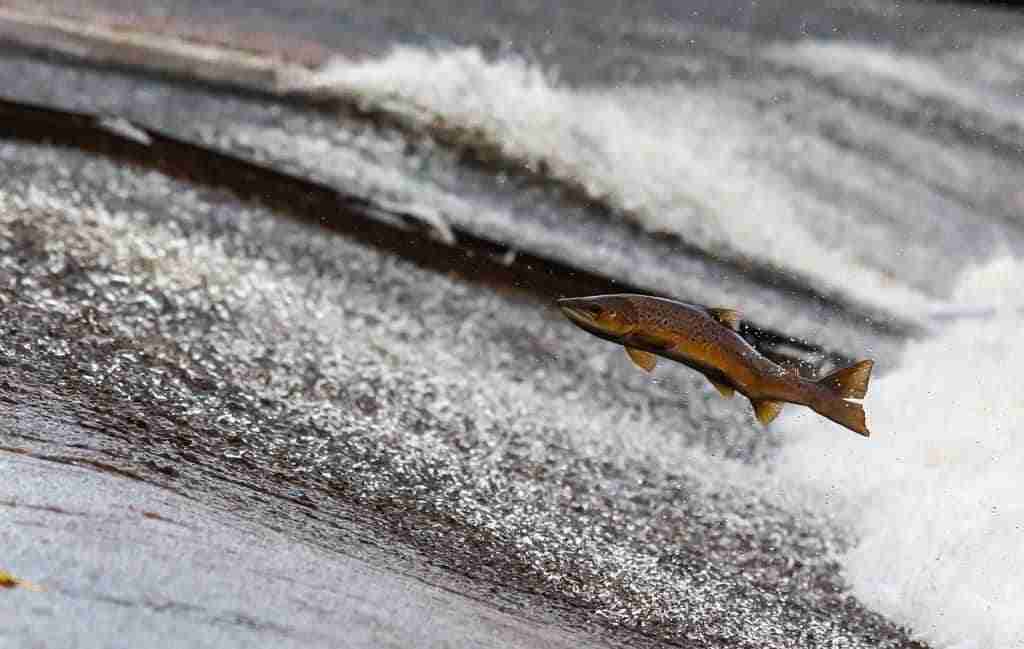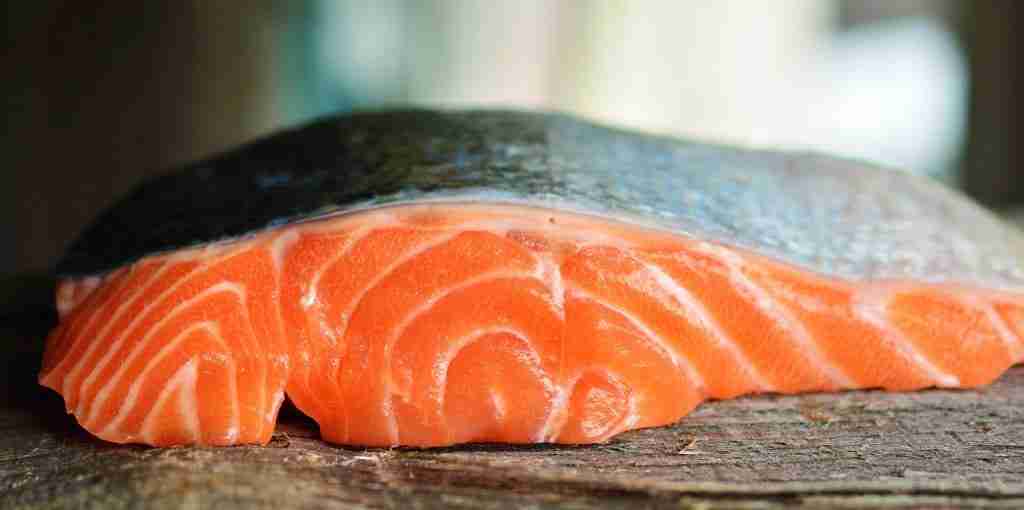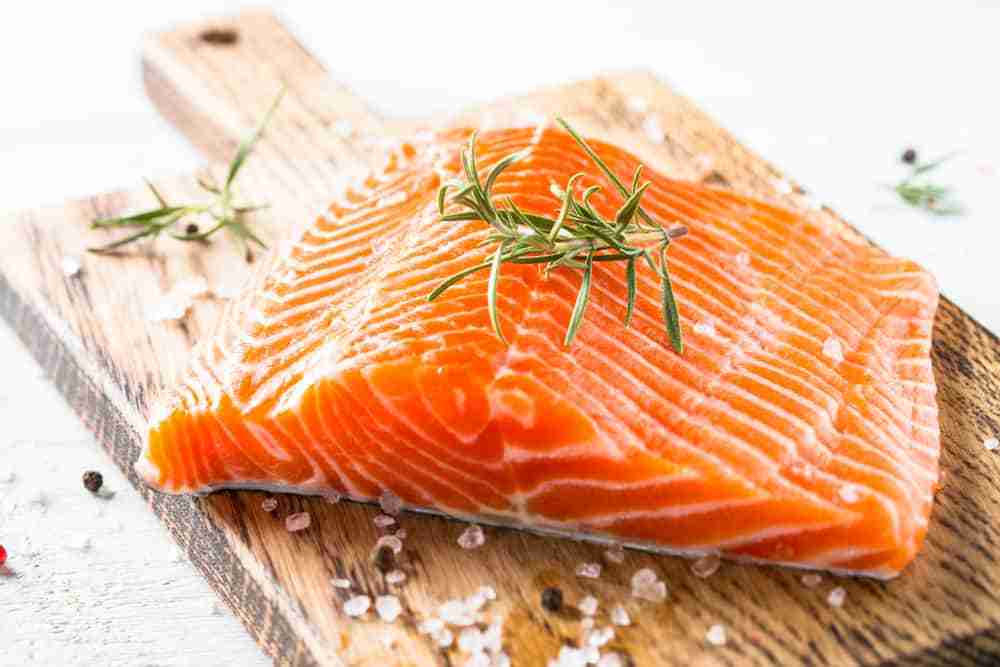Can cats have salmon? In moderation yes. But, it contains salt, mercury and lacks taurine which makes it far from ideal food for your cat. Read on to find out more.
Dietary questions are common for cat owners. Every cat owner on earth would like to imagine they’re doing the best for the health of their pet.
Cats have a special love for meat, fish, and dairy.
Whenever cats see foods like sardines, tuna, hake, and salmon… Well, any cat owner will know that cats nearly go nuts.
Cats really love fish. Some cats will practically claw at their owners for a bite of what they’re eating, but is it the healthiest thing for your cat?
Here’s what cat owners should know about cats and why they shouldn’t be snacking on too much salmon.
Can Cats Have Salmon?
Salmon is a common ingredient in dry and canned cat food, but it refers to flavoring instead of real fish.
The real fish (rather than the flavor) is a more complicated question for cat owners.
Salmon isn’t toxic to cats. But this does not mean that it is good for your cat’s health – especially not in large or regular amounts.
A cat can have a small bite of salmon and be fine. Although, if you were to feed your cat the fresh fish every week, it would have eventual negative effects on their health. Cats can become addicted to fish like salmon and tuna and end up turning down less exotic food!
The salmon flavor you’ll see in cat food has been specifically formulated for cats. It contains the right amounts of the necessary nutrients (like protein, fat, minerals, and vitamins). The same is not necessarily true for fish, either fresh or out of a can.

Should Cats Have Salmon?
Real salmon is high in ingredients like salt, fat, and mercury. Often, the fish you’ll find in stores or cans has been injected with dyes to add the characteristic red shade (which you won’t see in the farmed version).
These ingredients can become toxic to cats when consumed in large amounts.
Where not toxic, it can imbalance their nutritional intake. Too much fat, salt, or protein can be dangerous to a cat’s health. The more of these ingredients they consume, the more prone they could be to health conditions like cholesterol, adverse liver health, or even feline heart issues.
While cats can have salmon, it’s all the other ingredients that mean cats shouldn’t consume real salmon often.
If you notice that your cat is craving fish (or you feel like you would like to treat your pet), buy them a “treat” that has been formulated for optimal nutrition by a vet.
Potential Dangers
Salmon can be dangerous to cats, too.
This is because it is one of the types of fish highest in metals like mercury. An overload of mercury can become toxic to the liver or kidneys, and place additional unnecessary strain on the heart. Serious adverse effects are associated with a mercury overdose – and since cats have a lower body weight than humans, they would need to consume much less salmon for it to have this toxic effect.
The mercury that’s found in fish is why even humans are told to avoid consuming too much of it – especially with certain health conditions, or during pregnancy (where excess mercury can cause fatal issues).
It is not just mercury that is a potential problem with feeding your cat salmon on a regular basis. Fresh, uncooked fish may contain bacteria and parasites that can cause problems for your cat – especially if you make the raw fish a major part of their diet!
Then, even if your salmon is relatively mercury-free or parasite free, you have to consider the vitamin balances and take account of the fact that fish doesn’t contain taurine – an essential for cats!
Canned or cooked salmon will often have less nutritional value in terms of vitamins and nutrients like omega fatty acids as the cooking process destroys vitamins and nutrients. Canned fish often includes high levels of salt which can be hugely problematic for cats.
Put simply, cats are not really evolved to eat fish – no matter how much they enjoy the flavor or how it is presented to them!
This fact is endorsed by the fact that many cats are actually allergic to salmon or rather the proteins that make up the fish. If you are thinking of giving your cat salmon just be careful your cat is not one of the ones who have an allergy to salmon. Look out for vomiting, panting, itchiness, and diarrhea amongst other symptoms!
These potential dangers are why over-the-counter cat foods and snacks contain salmon flavoring instead of real salmon. It makes the food more appealing to cats but without the dangerous elements.

What Fish Can’t Cats Eat?
What other fish can’t cats eat?
Fish that have high mercury or fat contents (such as tuna) shouldn’t be given to cats – and especially should never be given to cats on a regular basis.
Excess amounts of the ingredients contained in these types of fish can change a healthy cat’s diet into an unhealthy diet. All it takes is a couple of the wrong snacks per week.
As a rule, avoid giving your pet human foods at all. What’s good for humans won’t be great for pets. It can cause health issues like weight loss, weight gain, or even a reduction in appetite due to other physical conditions.
If you must give your cat fish, then keep it bite-size, irregular, and preferably cooked and in terms of canned fish, packed in spring water.
What Can I Give My Cats?
If you want to treat your cat to something new, choose responsible snacks that have been made specifically for cats or are naturally suitable for your cat.
Keep in mind that cat food or snacks should not contain too much carbohydrate as your cat simply has no use for it, and it can lead to health issues in the long term.
At the same time consider those raw foods that you might consider natural for your cat might need to be supplemented with taurine and vitamins in order to be truly healthy for your cat.
You have to keep your wits about you if you want to give your cat the most healthy of options!
Can cats have salmon? If you want to give your cat the fish as a treat we would recommend small amounts of canned salmon that has been packed in spring water only as an occasional treat. If you are even more risk-averse, salmon-flavored cat food that has high moisture content and low carb content is probably the best option for a fishy salmon treat!
